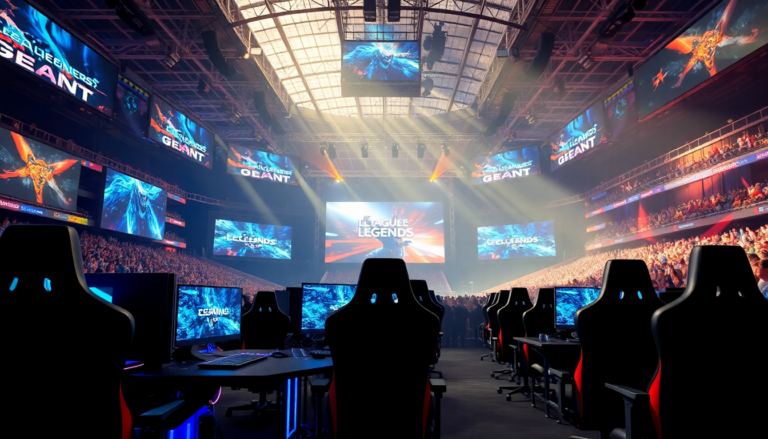Argomenti trattati
Esports, short for electronic sports, is more than just a buzzword; it’s a thriving competitive arena where video games take center stage in organized competitions featuring professional players. This dynamic field has exploded in popularity, particularly since the late 2000s, thanks to the rise of online streaming platforms like Twitch and YouTube. These platforms have transformed the way fans engage with professional gaming, allowing them to connect with their favorite players and events like never before.
The Evolution of Esports
In the early days, video game competitions were mostly informal and amateurish. But with technological advancements, everything changed. By the early 2010s, esports had firmly established itself as a major player in the gaming industry. Major developers jumped on board, investing heavily in esports tournaments and sparking a global surge in organized competitions.
Esports found its first major foothold in East Asia, especially in China and South Korea. South Korea, in particular, was a pioneer in professional gaming, licensing players as early as 2000. Meanwhile, Japan lagged behind due to strict anti-gambling laws that made professional gaming events virtually impossible. However, as the years rolled on, esports began to gain traction in Europe and the Americas, with regional and international tournaments becoming the norm.
When we talk about popular esports genres, we’re looking at Multiplayer Online Battle Arena (MOBA), First-Person Shooter (FPS), and Real-Time Strategy (RTS) games. Titles like League of Legends, Dota 2, and Counter-Strike have risen to the top, boasting massive fan bases and jaw-dropping prize pools. Events like the League of Legends World Championship and The International attract millions of viewers and significant sponsorship deals, firmly establishing esports in the mainstream entertainment world.
The Demographics and Cultural Impact of Esports
As esports evolved, so did its audience. Back in the early 2010s, viewership skewed heavily male, with estimates showing about 85% male and only 15% female participants. Fast forward to recent years, and we see a noticeable shift. By 2020, the global audience was projected to reach a staggering 454 million, generating over $1 billion in revenue. Much of this boom can be traced back to increased accessibility and the explosive growth of streaming platforms.
The cultural impact of esports is monumental. It’s now a legitimate career path for many, with universities even offering scholarships for esports players. Professional leagues are forming around various games, and esports events are increasingly held alongside traditional sports competitions. This significant crossover has helped to legitimize esports further, with the International Olympic Committee (IOC) even discussing the possibility of including esports in future Olympic events. Isn’t that a testament to its growing recognition?
Challenges and Controversies
Despite its rapid ascent, esports is not without its challenges. The debate about whether esports should be classified as a sport is ongoing, with discussions about the physicality involved compared to traditional sports. Some argue that esports fits more into the category of mind sports, while others advocate for its recognition as a legitimate sport.
Controversies also plague the industry. Issues such as match-fixing, the use of performance-enhancing drugs, and concerns about players’ mental health have come to the forefront. The pressure to consistently perform at high levels can lead to significant stress and burnout, prompting organizations to step up and provide mental health support for their players.
As esports continues its rapid evolution, it faces the dual challenge of needing regulation and ensuring player protection, all while striving to maintain its competitive integrity amidst a growing audience. With its potential for even further growth and recognition, esports stands at a critical juncture, poised to shape the future of digital entertainment. The question is, how will it navigate these challenges moving forward?

